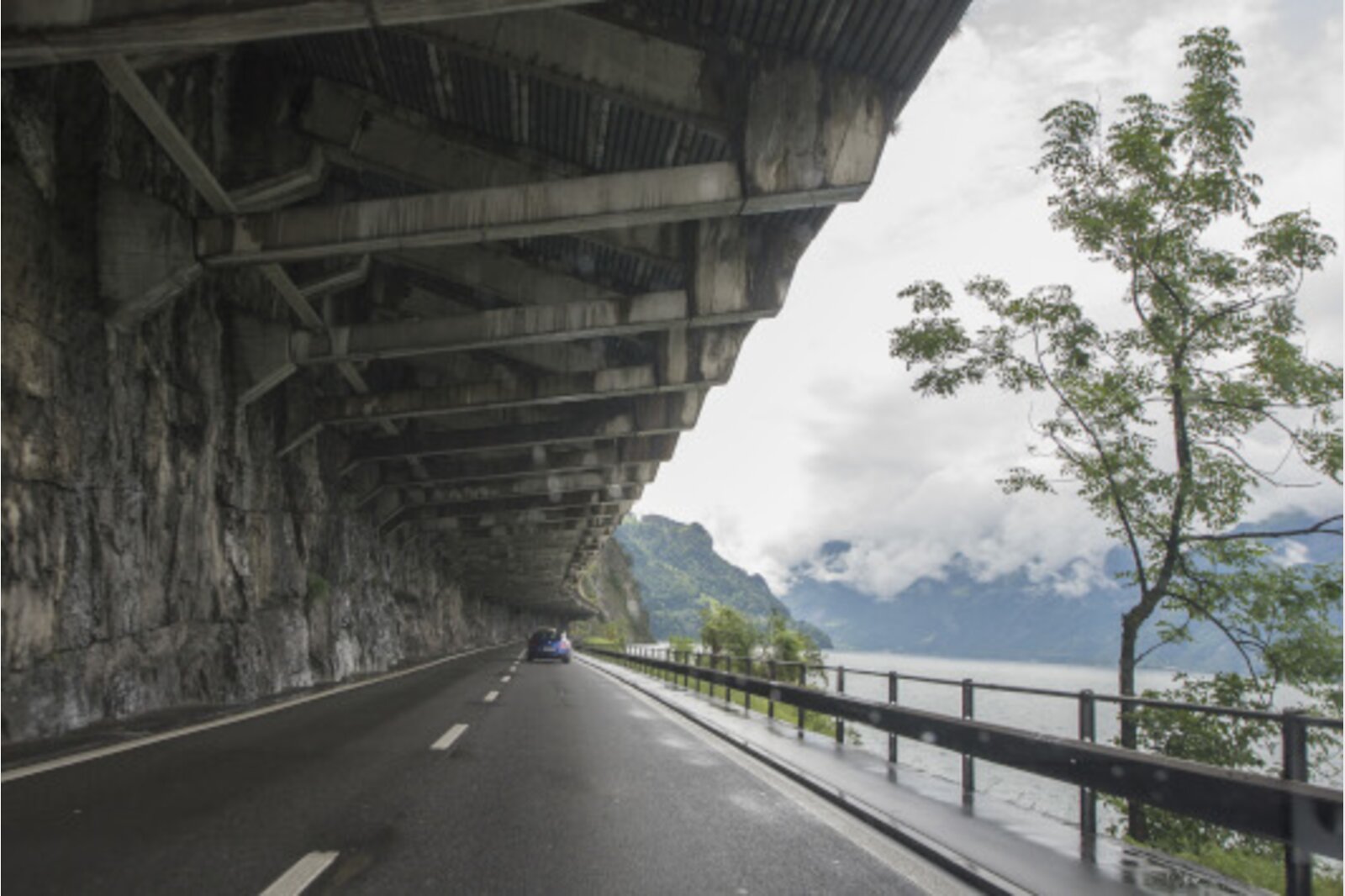Press release regarding judgment A-2997/2020
New Axenstrasse: appeal dismissed
The Federal Administrative Court has dismissed an appeal lodged by environmental associations against the planning approval of the “N04 Neue Axenstrasse” project. This is the Court’s first ruling on the applicability of the Alpine Convention to an infrastructure project.

The existing Axenstrasse motorway interconnects Brunnen and Flüelen along Lake Uri, with traffic volumes of up to 16,000 vehicles on peak days. This section of road, roughly 11 kilometres long, is part of the N4 national motorway (N04). Owing to rockfalls and landslides, the road is often closed, sometimes for weeks at a time. The Axenstrasse runs through the village of Sisikon, which is especially impacted by the traffic.
In 2014, the two cantons of Schwyz and Uri submitted the “N04 Neue Axenstrasse” project to the Federal Department of the Environment, Transport, Energy and Communications (DETEC). The project basically involves the construction of twin tunnels through which the main traffic between Ingenbohl and Gumpisch would be routed in future. A protection gallery is also planned in the Gumpisch area to protect the road against falling rocks. Moreover, accompanying measures on the old Axenstrasse would ensure that transit traffic is routed over the new road, making the old road safer for slow vehicles and enhancing its appeal for tourists. With the exception of the supporting measures, DETEC approved the project in April 2020 with conditions. The associations Alpen-Initiative, Ärztinnen und Ärzte für Umweltschutz (Doctors for the Environment) and Verkehrsklub der Schweiz (VCS - Swiss traffic club) filed a joint appeal against the planning approval with the Federal Administrative Court (FAC).
Lawfully reclassified
The appellants essentially maintain that the Federal Council’s decision to reclassify the new section of road, which Parliament had determined was a third-class national motorway, is unlawful. After a thorough interpretation of the applicable provision, the Court reached the conclusion that the decision to upgrade the section between Brunnen and Fluelen to second-class national motorway status was not objectionable. The Federal Council had not overstepped its powers; moreover, the reclassification was lawful on safety grounds since the use of the tunnel by slow means of transport (tractors, bicycles) would be too dangerous. The FAC emphasised that slow and local traffic could continue to use the old Axenstrasse route.
Project not inconsistent with the Alpine Convention
Responding to the submissions of the environmental associations, the Court also considered whether the Alpine Convention was to be taken into account in the planning for the new Axenstrasse. The Court reached the conclusion that the rules of the Alpine Convention as a framework agreement are not directly applicable in the case at hand. Nor can the Transport Protocol of the Alpine Convention apply since it still has not been ratified by Switzerland. It follows that the lawfulness of the new Axenstrasse must be determined based on national law.
Compliance with the CO2 Act
The appellants also submit that, in establishing the environmental sustainability of the project, account must be taken of the commitments under the Paris Agreement on Climate Change. The FAC does not concur with this reasoning. Since the Swiss electorate had rejected the total revision of the CO2 Act, which would have transposed the requirements of the Paris Agreement, only the provisions of the CO2 Act in force apply. The latter offers no practical guidance for the project. Accordingly, the Court dismissed the complaints in this regard.
Furthermore, the FAC established that the appellants’ submissions concerning encroachments on national natural conservation sites (fenlands and amphibian habitats) are all unfounded. As a result, the Court ruled that there are no grounds to cancel the planning approval and rejected the appeal.
This judgment may be appealed to the Federal Supreme Court.
Contact

Rocco Maglio
Press secretary
